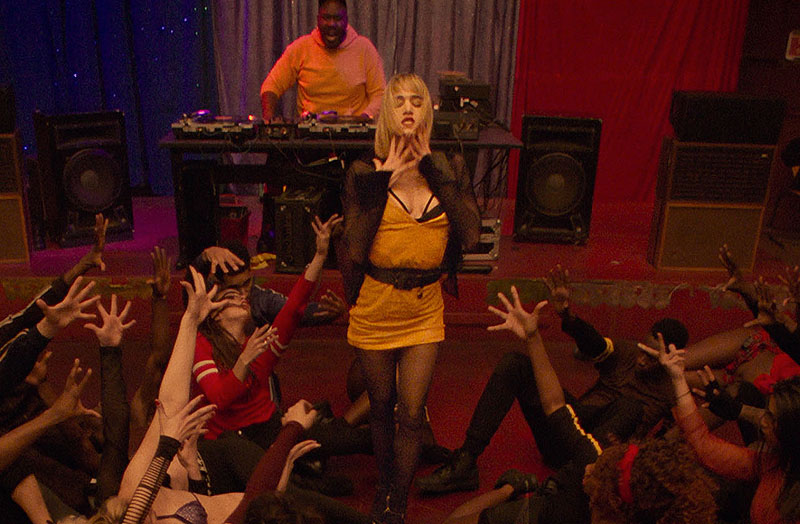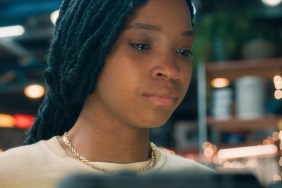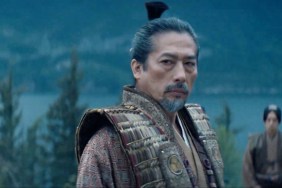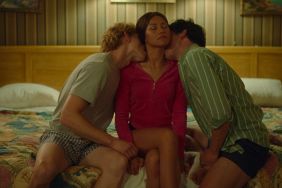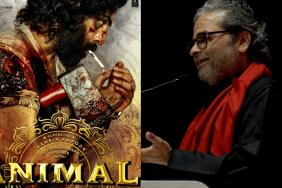A24‘s Climax debuted this past weekend to the highest-per-screen average of any movie currently playing, and has earned rave reviews for its mixture of dance, horror and eroticism that takes audiences on a wild ride. ComingSoon.net got to chat 1:1 with star Sofia Boutella (Atomic Blonde, Star Trek Beyond) about her intense performance in the film, as well as her thoughts on 2017’s The Mummy! Check out the interview below!
From director Gaspar Noé (Irreversible, Enter the Void, Love) comes a hypnotic, hallucinatory, and ultimately hair-raising depiction of a party that descends into delirium over the course of one wintry night. In Climax, a troupe of young dancers gathers in a remote and empty school building to rehearse. Following an unforgettable opening performance lit by virtuoso cinematographer Benoît Debie (Spring Breakers, Enter the Void) and shot by Noé himself, the troupe begins an all-night celebration that turns nightmarish as the dancers discover they’ve been pounding cups of sangria laced with potent LSD. Tracking their journey from jubilation to chaos and full-fledged anarchy, Noé observes crushes, rivalries, and violence amid a collective psychedelic meltdown.
Starring Sofia Boutella and a cast of professional dancers, Climax is Noé’s most brazen and visionary statement yet.
RELATED: Interviews with Hotel Artemis Cast: Boutella, Brown, Day and Henry
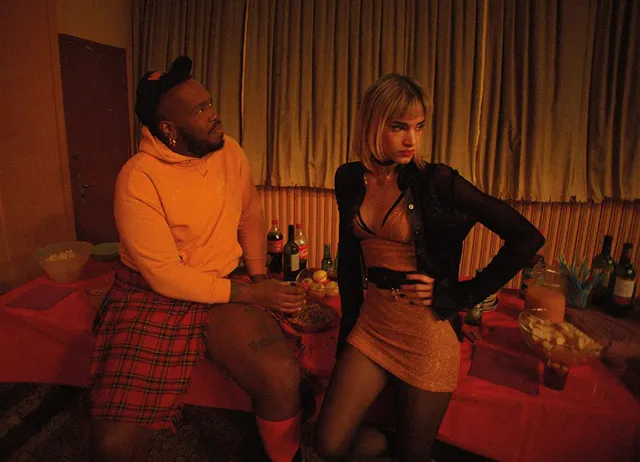
ComingSoon.net: So I loved the film. I think it’s one of the few movies I’ve seen lately where you have to see it in a theater to get the full effect. What was your impression, once you saw it all put together?
Sofia Boutella: I mean, I just generally realized what we had done because I think it was hard to have a specific idea. Even at the end, because we didn’t have a script, you know? So it was something that we built as we went, and I just learned and went. When I saw it I was like, “Holy shit. We did that.” I didn’t realize it because while we were all shooting we had to keep it together and stay focused, so there’s no time to release and observe. I was just wildly impressed by Gaspar’s work and what he did with the camera, and I was impressed with the music and the sequence where he decided to do the credits in the middle of the movie. I was just really also impressed by all of it.
CS: One of the things that really gives it this incredible momentum is there are several big sequences throughout the film that either are or appear to be done in one take. Can you talk about the technical aspects of pulling off some of those one-ers?
Boutella: Yeah, I’d never done that before. We rehearsed everything. We would come to set and we would rehearse between eight to ten minutes-long sequence shots for four to five hours. We would manicure it and go back at it and polish the scene that was eight to ten minutes long. And then we’d break for lunch, then we would shoot between 14 to 17 takes.
CS: Wow.
Boutella: Yeah, I know. It was quite intense. And then, yeah, the same thing. Gaspar would come to set and be like, “I really want to explore this area of the set. How about we film there?” And then we would start rehearsing, then, things would build from that point on little by little.
CS: Because your character is the ringleader of this dance troupe, what did you reveal to yourself about her during the process of making the film?
Boutella: Gaspar gave me the opportunity to play whoever I wanted to play. He had thought maybe I could be better with the pregnant woman, and finally gave me the opportunity of the choreographer. He really asked me what I thought and who I wanted to play, which I’ve never experienced before. I was drawn towards the choreographer because I thought there would be an interesting color there to explore. I’ve never been a choreographer, but I thought it’d be interesting to play a woman who has danced for many years, but hasn’t achieved greatness and tried desperately to relate or still be good at it, you know? And is trying desperately to be nurturing, but isn’t necessarily the best at it. I looked at that dance competition, that I have something that she is achieving, but she has never experienced anything like that before and she’s proud of it. That’s the disappointment, then, when you realize that it’s not going to go anywhere, and that her dancers are being hurt one by one, and that she didn’t accomplish that the way she thought she could.
CS: Right. And of course, the whole reason why everybody’s going nuts is because one of the dancers has laced the sangria with LSD. Did you have drug consultants or did certain members of the cast have experience with LSD? How did you all kind of figure out how to realistically perform the effects of the drug?
Boutella: I’ve never had experience with LSD, but I researched it online, and I looked at a lot of footage on the internet, and it was so much. It was this drug that was quite terrifying called flakka, and it’s quite disturbing to look at and it really shocked me and that’s the one I decided to go with, not LSD, because I wanted to find an extreme sort of look of a substance. That’s the best one for me. That’s the one that did it, because it really made me feel sick to my stomach.
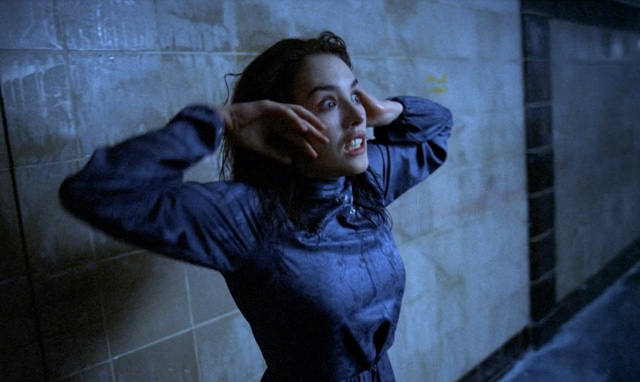
CS: Everybody in the film reacts a little bit differently to the drug. Your character becomes very fearful and very histrionic with her movements. And one of the videotapes shown at the beginning of the film, which I assume are some of the inspirations for the film, was “Possession.” Did you actually see that movie?
Boutella: Yeah. I know, I’ve been talking about that. That’s one of the first things that me and Gaspar talked about. The first day we sat together he said, “I want to do a movie with dancers that are spiked with LSD.” And I asked him, “What else?” And he said, “I don’t know.” Because that’s how spontaneous he is. I just sat there for a bit and my brain went super fast, and I asked him, “Could I explore something something similar to Isabelle Adjani in “Possession”? And he loved the movie. And it’s so funny because I had seen the movie not too long before that. And he just said, “Yes, absolutely. I love that movie.” So that’s the only thing I knew that I was going to start to act completely happy, dance rehearsal, and finish in that nightmarish situation.
CS: Yeah, I had just seen the movie within the last year as well, and as soon as I saw your performance that was what popped into my mind. Like Isabelle Adjani in that movie, you’re using your body and you’re contorting yourself in these ways that express just this extreme emotional pain and anguish.
Boutella: The thing that triggered me when Gaspar said dancers and drugs and made me think about Isabelle Adjani in that movie is because I still don’t have the answer, but I am convinced that she’s worked with a contemporary choreographer or a movement teacher of some sort. I don’t know if I want to know if she worked with a choreographer or not, but I do know that it’s something that stays with me. When I told that to Gaspar, we did not want to do the same thing at all. That’s to respect the actual work of Andrzej Zuławski and Isabelle, because copying is not the key at all, or the solution. But psychologically, we wanted something that resembles that. It was such a good reference for us to follow.
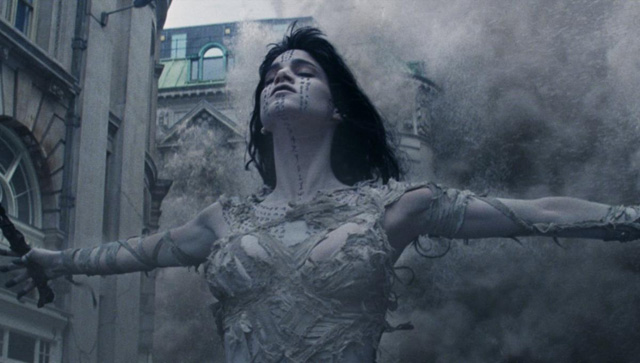
CS: One of the best parts of “The Mummy” was your performance and the physicality that you brought to that.
Boutella: Oh thank you.
CS: Yeah. Were there plans to bring you back into that universe before the idea of the Dark Universe collapsed at Universal?
Boutella: I think, yeah, they were trying for the character, but I think they wanted to also explore other monster characters. You know, so I did not know yet, but I think, yes, they had of course, I think the ideas of doing that, I remember them speaking about that. But I don’t know what’s happening now. You probably know more than I do.
CS: Well, it seems like they’re abandoning it to do more kind of low budget single films like not connected to each other.
Boutella: But still from the Carl Laemmle monster universe?
CS: Yes, exactly, yeah. But yeah, was there anything that you hoped to do further with that character?
Boutella: I mean, yeah. I mean, I actually love the character of Ahmanet and yes, if I’m given the opportunity to play her again, I’d be more than happy.
CS: So far in your acting career, what has been the most demanding role, either emotionally or physically?
Boutella: I think probably “The Mummy” and “Climax” were the most demanding, “Climax” being the most right now at this point.
CS: In what way?
Boutella: I think emotionally demanding, you know, because we were living at such an extreme, and I’ve never been there before, to those waters, as an actor and even as a dancer. So those two combined make it the most extreme.
